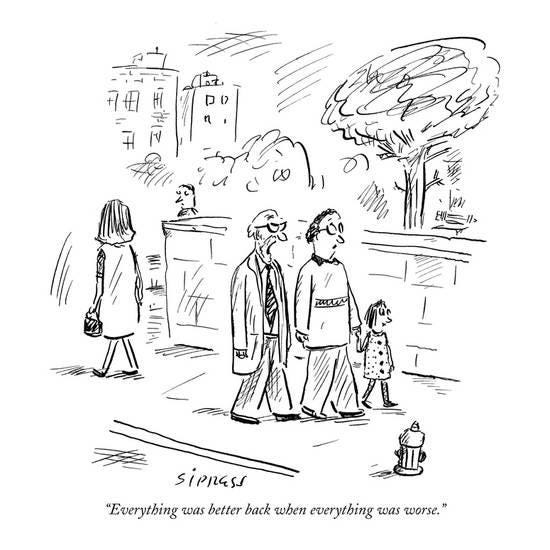Out of all the great TED talks that exist, Barry Schwartz’s is easily the best. He talks about what he calls The Paradox of Choice. I’ve gone back to it countless times for countless reasons, but my favorite part is when he shows this comic:
Ask anyone how they feel about their life from ten years ago, and they’ll likely tell you that “those were simpler times.” Less to worry about, more to enjoy. Somehow, everything was easier. Today, it’s all complicated. Always.
“Everything was better back when everything was worse.”
It’s more than a good chuckle. So simple, yet so instinctively true. But why does our gut want to agree so badly when we hear this? Barry explains:
Read More










